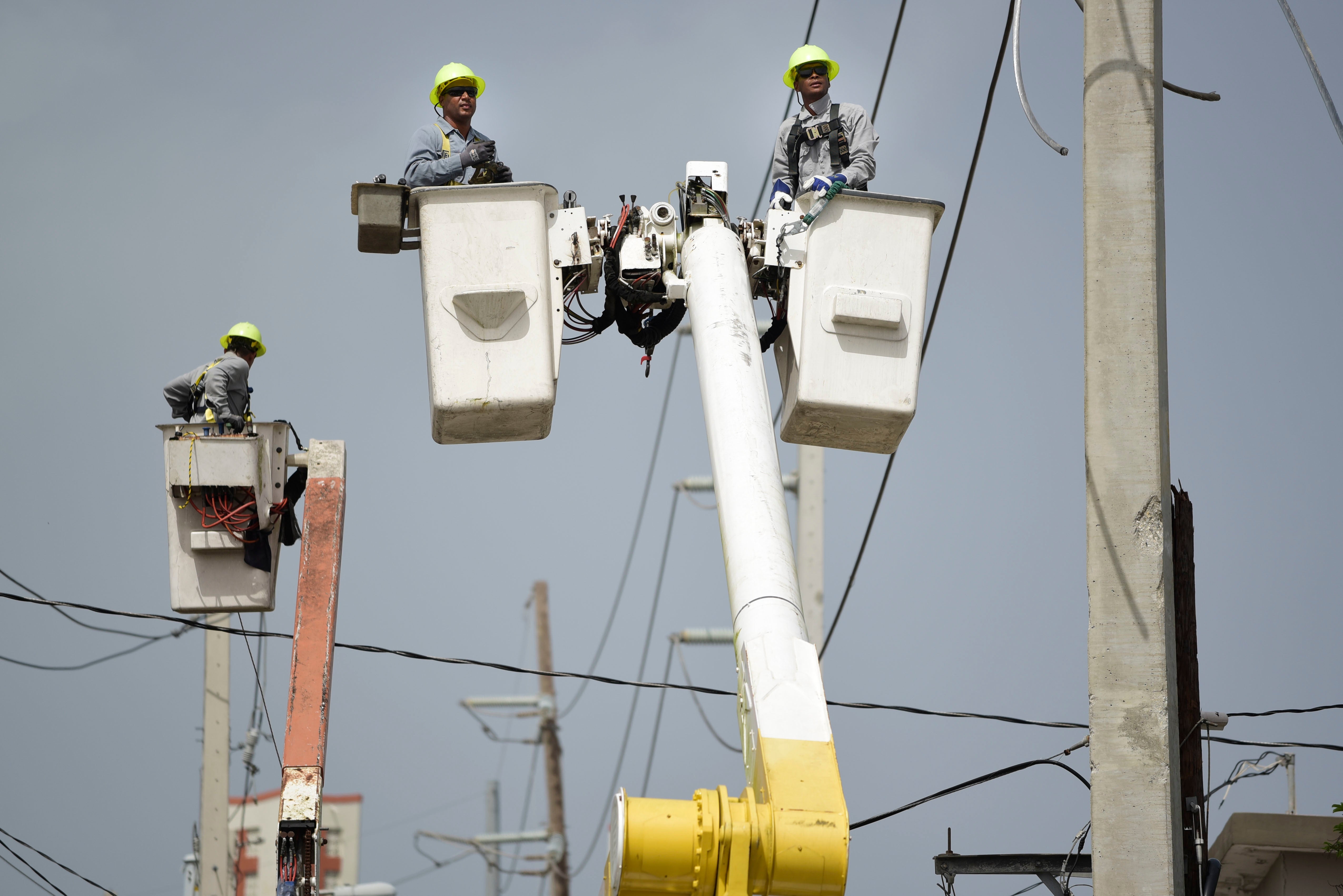Puerto Rico pushes for private power generation amid secrecy
The governing board of Puerto Rico’s power company says it has approved a plan to privatize electric generation in the U.S. territory after meeting for nearly two hours behind closed doors

Your support helps us to tell the story
From reproductive rights to climate change to Big Tech, The Independent is on the ground when the story is developing. Whether it's investigating the financials of Elon Musk's pro-Trump PAC or producing our latest documentary, 'The A Word', which shines a light on the American women fighting for reproductive rights, we know how important it is to parse out the facts from the messaging.
At such a critical moment in US history, we need reporters on the ground. Your donation allows us to keep sending journalists to speak to both sides of the story.
The Independent is trusted by Americans across the entire political spectrum. And unlike many other quality news outlets, we choose not to lock Americans out of our reporting and analysis with paywalls. We believe quality journalism should be available to everyone, paid for by those who can afford it.
Your support makes all the difference.Nearly two hours after meeting behind closed doors, the governing board of Puerto Rico’s power company emerged Thursday to briefly announce it was approving a plan to privatize electric generation in the U.S. territory.
No other details including the name of the company selected or how much it will be paid were provided as Puerto Ricans grow angry and exasperated with the secrecy surrounding the push to privatize the operation and maintenance of generation units.
The sole dissenting vote came from the board member that represents the public’s interest, Tomás Torres, who told The Associated Press that he saw no need for another multimillion contract with a private power company that would lead to yet another increase in people’s electric bills amid chronic outages.
He noted that the current generation units of the island’s Electric Power Authority have been recently maintained and will go offline this decade anyway because many are more than 50 years old.
“This contract is not necessary,” he said of the push to privatize the operation and maintenance of units that will eventually be replaced by renewable energy sources.
Critics like Torres also oppose the contract given the problems that arose after Puerto Rico’s power company privatized the transmission and distribution of electricity on the island nearly two years ago. He noted that the duration of power outages has since worsened, among other issues.
“Now we’re risking the same in generation,” he said.
By law, the power company’s board is not required to provide details about its meeting, nor a copy of the contract or the name of the company chosen. Board president Fernando Gil said only that the contract is for 10 years and can be revised in the fifth year.
The contract was previously approved by Puerto Rico’s Public-Private Partnerships Authority on Sunday in a unanimous vote, including by members who represent the public’s interest. It now goes to Gov. Pedro Pierluisi, who is expected to approve it.
Puerto Rico’s power grid has long been unstable given a lack of maintenance and investment, but it was crushed after Hurricane Maria hit the island as a Category 4 storm in 2017. Reconstruction efforts have just begun, with only emergency repairs made since the hurricane struck. The grid was further weakened when Hurricane Fiona, a Category 1 storm, barreled through the island’s southwest region in September, causing an island-wide blackout.